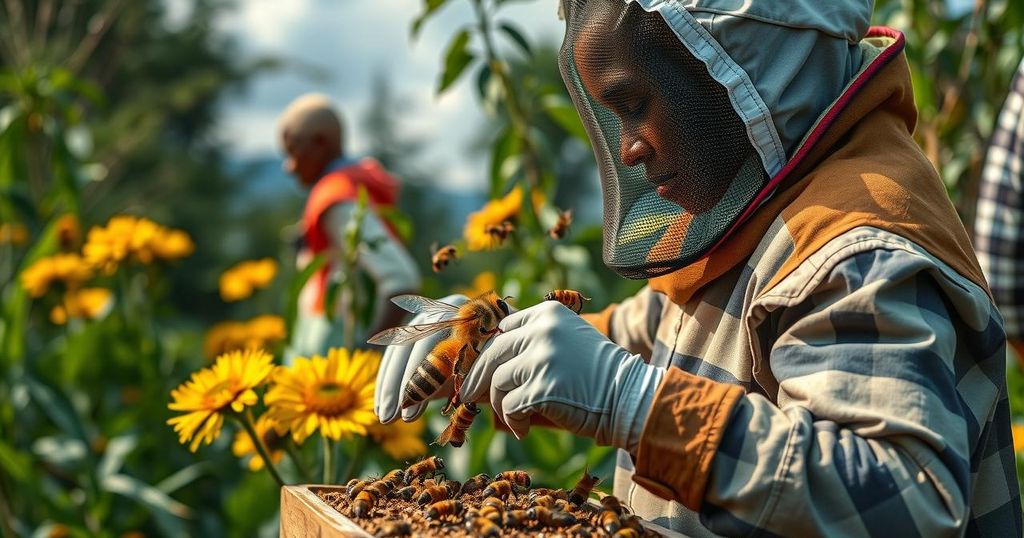Beekeeping: A Sustainable Solution for Climate Resilience in Kenya

Beekeeping is emerging as a key strategy for communities in Kenya affected by climate change. As traditional farming and livestock practices decline due to droughts and floods, conservation experts are promoting beekeeping as a climate-resilient livelihood. This initiative aims to empower local communities while enhancing environmental sustainability and food security.
In response to the adverse effects of climate change, particularly in dryland regions, communities in Kenya are increasingly turning to beekeeping as a sustainable livelihood. The U.N. Environment Program has identified these areas as significantly impacted by global warming, suffering from persistent droughts and devastating floods that threaten traditional farming and livestock practices. Conservation experts are facilitating the transition to beekeeping, recognizing it as a viable alternative that not only provides economic benefits but also promotes environmental sustainability. Beekeeping offers an effective way for these communities to adapt to the changing climate by diversifying income sources and enhancing ecological resilience through pollinator protection. This initiative aims to empower local populations, improve food security, and foster community cohesion, demonstrating the multifaceted benefits of integrating beekeeping into climate adaptation strategies.
Climate change poses a serious threat to communities worldwide, with those in arid and semi-arid regions facing heightened vulnerability due to erratic weather patterns. In Kenya, traditional livelihoods such as agriculture and pastoralism have been jeopardized, leading to food insecurity and economic instability. Beekeeping emerges as a climate-resilient livelihood, effectively suited to the evolving environmental conditions while supporting the natural ecosystem. The practice of beekeeping not only contributes to honey production but also plays a crucial role in pollinating crops, thereby enhancing agricultural productivity and sustainability.
In conclusion, beekeeping in Kenya serves as a transformative strategy for communities grappling with the impacts of climate change. By promoting this alternative livelihood, conservationists and local stakeholders foster resilience against climate-related challenges. The shift towards beekeeping not only supports economic stability but also enhances ecological balance, ensuring that communities can adapt to their ever-changing environment. By prioritizing such sustainable practices, Kenya can pave the way for a more resilient future in the face of climate challenges.
Original Source: www.voanews.com






